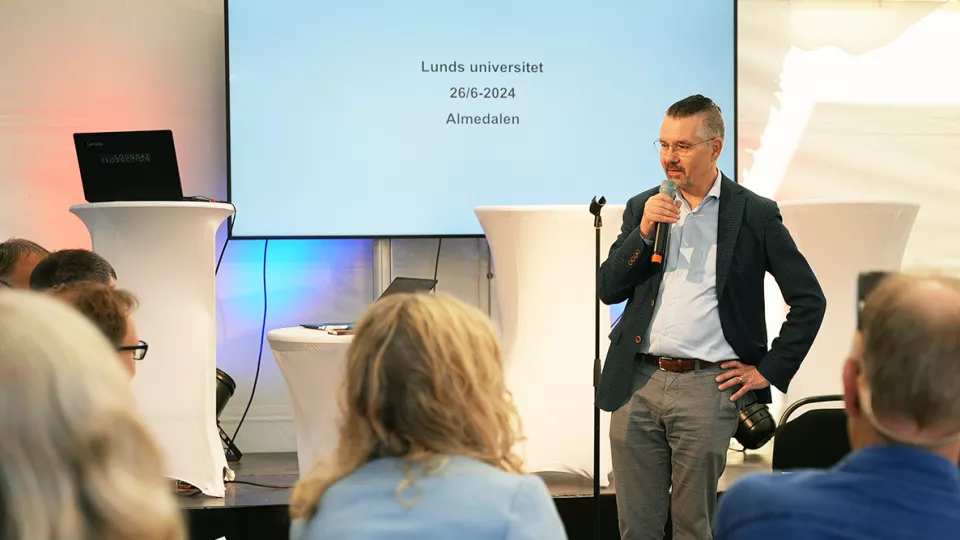Semiconductors are a strategically important component of today’s and tomorrow’s society. The technology is needed not only for the green transition, but also for our security in a troubled world – and major international investments are now being made.
Lars-Erik Wernersson, professor of Nano Electronics at LTH, Lund University, has been working on the national agenda for semiconductors for several years. The strategy has recently been launched, and now begins the work that will clarify the future direction. He says:
“The national agenda is ready, but now we need to sharpen the content and talk about possible synergies with other strategic technologies such as AI, quantum technology, and digital infrastructure.”
Lars-Erik Wernersson is still in the lead of the national work on semiconductors – and the discussion during this year’s Almedalen Week is one of several next steps.
With the Vice-chancellor of Lund University, Erik Renström, and the Dean of the Faculty of Engineering, Annika Olsson, he has invited universities, technology companies, industry organizations, decision-makers, stakeholders, regions, and municipalities to discuss the common way forward.
More expertise needed
To frame the topic, Lars-Erik Wernersson starts with a look back.
“Semiconductor technology has received a lot of attention in recent years. The reason is that semiconductors are needed in nearly all technologies that drive our modern world, but there has been a shortage of both components and skills in the industry,” he says.
Since the work on the national strategy began a couple of years ago, several boxes have been ticked by many committed actors. However, there are parts of the strategic work that can be sharpened, according to both Lars-Erik Wernersson and the participants in the discussion, and several of them emphasize the need for more expertise in the future.
One is Elna Heimdal-Nilsson, a researcher in Combustion Physics and coordinator for Lund’s part in the Compel battery initiative. She says:
“We need to increase the number of training places – but how do we get students to apply for engineering programs? A national agenda for semiconductors risks being ineffective without future skills.”
The application can be clarified
Sofia Persson Björk, chair of the board of the Swedish Electronics Trade Association (for electronics manufacturers, developers, and suppliers), says there is a need for clearer examples of the specific application of semiconductors:
“Semiconductors are used in so many areas – advanced healthcare, electronics, food, and much more – but we are not very good at making their use visible. A better understanding of the specific application can help to increase interest in education in the field.”
Another participant suggests bringing together actors to identify activities that can increase interest in the technology among young people, another thinks that the business community should be at the forefront of semiconductor technology and that cooperation with academia can be increased through more industrial doctoral students. One more participant points out that the pandemic made it clear what semiconductors are, but the memory needs to be refreshed.
”The crisper the agenda – the more policy impact”
Vinnova, Sweden’s innovation agency, has recently been commissioned by the government to identify and propose strategically important technologies for Sweden. The proposals will form the basis for prioritizing future investments in technology and innovation.
Ylva Strander, who leads Vinnova’s work to identify the important technologies of the future, concluded the Almedalen discussion with the words:
“This is not a time to invest widely. Technology development is moving extremely fast and we will need to set priorities. The more industry and academia can come together, the easier it will be to set priorities. The crisper the agenda – the more policy impact we will have.”
The semiconductor discussion is held together by moderator and business journalist Thomas Frostberg. He finalizes by asking Lars-Erik Wernersson to reflect on the next step with the question “What keeps you awake at night?”
“I think we have a good handshake between academia and industry – but we also need the blessing of the government. The fact that we haven’t come all the way yet may affect my level of alertness at night, but I hope for better sleep soon,” says Lars-Erik Wernersson, agreed by the other participants.


